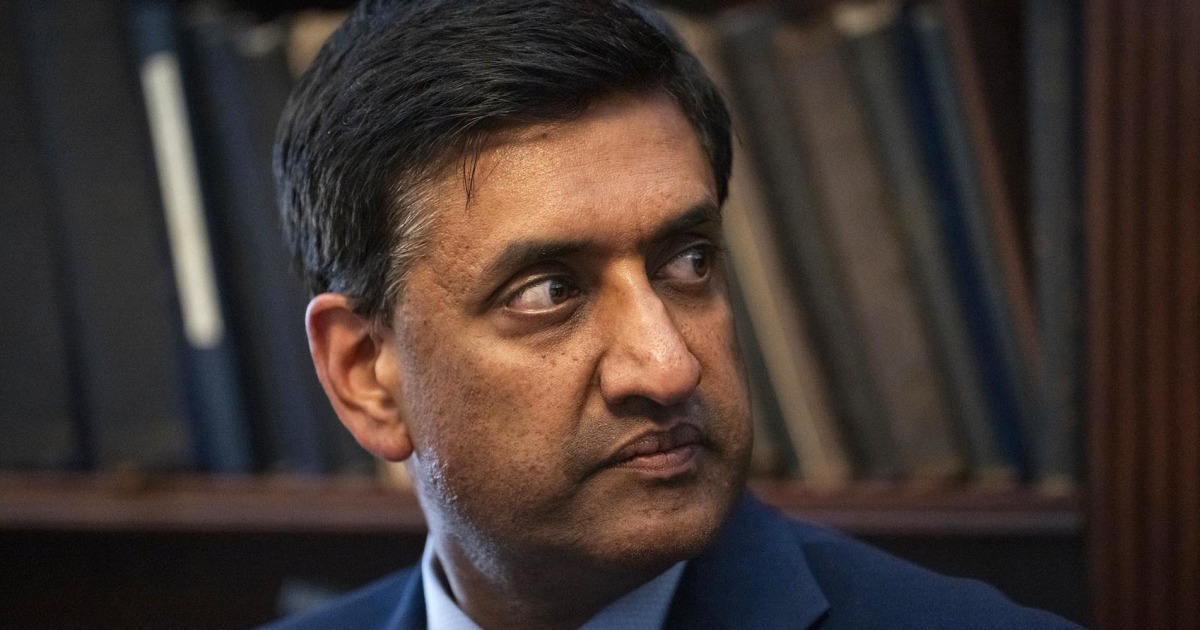Jeffrey Epstein’s client list isn’t just about sex and abuse; it’s about power, blackmail, and political leverage that has corrupted the highest echelons of society for decades. Now, President Trump has signed a bill forcing the release of these files. Do you truly believe this is a noble pursuit of truth, a sudden pivot towards transparency from Washington, or is it the ultimate political chess move designed to shatter careers, rewrite historical narratives, and strategically weaken opponents just months before a pivotal election? Because in DC, nothing is ever as it seems, and this ‘victory for transparency’ smells precisely like a trap.
The Real Story
A “bipartisan” bill, passed with “near-unanimous” consent, compelling the Justice Department to finally release the long-awaited Jeffrey Epstein files within 30 days. On the surface, it’s being lauded as a victory for transparency, a triumph hailed by figures like Rep. Ro Khanna, who’s already claiming it as a win that “cracks the MAGA coalition.” But let’s strip away the PR veneer and look closer. Trump’s signature isn’t an act of grace; it’s a strategic deployment, a calculated maneuver on a chessboard where reputations are pawns and power is the only prize. The timing of this sudden consensus across the aisle—the swiftness, the lack of typical political obstruction—this isn’t about doing the right thing because it’s the right thing. This is about what dirty laundry serves whose agenda best in a volatile election year. It’s about pre-emptive strikes and post-hoc justifications. This isn’t a crack in the MAGA coalition; it’s a controlled demolition, meticulously planned to expose someone else’s foundation. The question isn’t if explosive information will drop, but whose reputations will be detonated, and more crucially, who sanctioned the detonation and why now? Every “near-unanimous” vote in Washington should instantly raise suspicion, especially when it concerns secrets this toxic. Someone is very eager for these files to see the light of day, and someone else is very eager to control the ensuing narrative.
“Don’t mistake Trump signing this as a concession to the public or even a ‘win’ for transparency,” whispered a veteran DC operative with a cynicism born of decades in the swamp. “He’s not reacting; he’s orchestrating. The establishment thinks they’re cornering him, forcing his hand on a popular bill, but he just handed them a grenade, pulled the pin, and walked away. The real question isn’t who gets named in the files, it’s who catches the blast when they inevitably hit the news cycles, and who benefits most from the resulting chaos. Mark my words: this isn’t about justice; it’s about political warfare, and the documents are merely ammunition.”
Why It Matters
This isn’t just about the victims, though their pain and their pursuit of truth are undeniably critical. This is about the unholy, symbiotic alliance between money, power, and perversion that has quietly, insidiously shaped American politics and global finance for decades. The Epstein files are a ticking time bomb, loaded with the names of titans of industry, entertainment moguls, banking scions, and senior government officials—individuals whose influence has insulated them from accountability far too long. Their release isn’t merely exposing past sins; it’s fundamentally destabilizing current power structures, threatening the very fabric of the elite establishment. Fortunes will be lost, careers obliterated, and political dynasties will crumble under the weight of these revelations. The Justice Department, now on a strict 30-day clock, holds the keys to Pandora’s Box, and the reverberations will shake every corner of the elite world. This is less about abstract justice and more about a very public, very brutal reckoning, where the weaponized truth becomes the ultimate currency, and deniability is the first casualty. Think about the silent power brokers, the backroom deals, the favors exchanged. Every single one of them is now looking over their shoulder, wondering if their name, or the name of a close associate, is buried within those pages.
The Bottom Line
Prepare for an earthquake. The brief, almost unnerving, “bipartisan” glow around this bill will vanish the moment the files drop, replaced by frantic finger-pointing, strategic leaks designed to redirect blame, and a ruthless media war waged by proxy. The true target isn’t just Epstein himself—he’s merely the conduit—it’s everyone who enabled him, protected him, and ultimately profited from his vile network. This isn’t a cleanup operation; it’s a full-scale purge, orchestrated from the top. Expect a brutal, mud-slinging campaign, a flurry of last-ditch legal challenges to suppress specifics, and a swift, cynical re-evaluation of who truly holds the levers of power in Washington. And as the dust settles, consider the implications for the presidency itself. The 25th amendment, often whispered in hushed tones during periods of presidential instability, suddenly feels less like a distant constitutional abstraction and more like a potent, readily available tool that could be wielded in the ensuing chaos, depending on the magnitude of the implicating information and the political fallout. If these initial releases are merely the tip of a monstrous iceberg, the political landscape will be unrecognizable by spring, and the trust in institutions, already frayed, will be shattered beyond repair.


